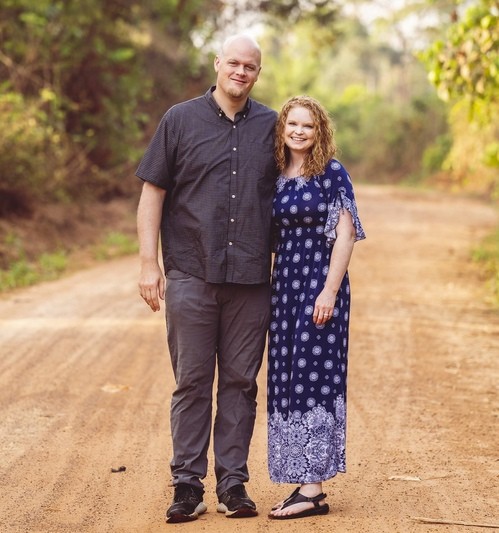


Rekindle Your Love For Jesus
I’m not an outdoorsman by nature, but I do know how to get a fire going. It’s simple. You just buy Duraflame fire logs, set the packaging on fire, and voilà, you’ve got yourself a fire burning. Whenever the fire starts to wane you just throw real wood onto the already existing fire and it keeps the fire burning. If you want to keep the fire burning, you have to do this. If not, the fire will die. The same is true for our love for Christ. Our love for Christ upon becoming a Christian burns with an unquenchable fire, but over time it is easy for the flame to begin to weaken. We saw this in the church of Ephesus (Revelation 2:1-7), and we see this in ourselves.
This past Sunday morning, Pastor Tyler preached the first letter of seven to the seven churches. Though this church had gotten much right, they got something important terribly wrong: they lost their first love for the Lord. This first letter to a church almost 2,000 years ago still resonates with us today. Why? Because like them, our love for Christ often goes cold. In this short article, I want to give you some kindling to throw on the fire of your love for Christ. As the hymn “Come Thou Fount” tells us, we are prone to wander. This includes wandering from a passionate love for Jesus. Pastor Tyler gave us some indicators to help us gauge when the “fire” is getting low. So what can we do to rekindle the flame?
There is a story in the Gospel of Luke (Luke 7:36-50) where Jesus is eating at a Pharisee’s house. During the meal a woman, who all we know about her from the story is that she’s a well-known sinner, comes to the dinner and does something radical. She broke a box of ointment on Jesus, wet his feet with her tears, whipped the tears with her hair, kissed his feet, and then anointed them with the ointment. The Pharisee wasn’t happy with this. But his negative response wasn’t directed a the woman. It was directed at Jesus. He thought, “Surely if this man was a prophet he would know what kind of woman this is and he would not be allowing this to happen.”
Jesus responded. He told the Pharisee that it wasn’t an inappropriate action on the woman’s part, but an action of extravagant love. How was this an act of extravagant love? It was an act of extravagant love because the woman was indeed a sinner and she knew it, but she experienced grace and forgiveness from Jesus for all of her sin. That’s why she was doing what she was doing. She loved Jesus and expressed her love because she understood what it meant to have sin that she had and yet be forgiven of it. Jesus said this in Luke 7:47, “Therefore I tell you, her sins, which are many, are forgiven—for she loved much. But he who is forgiven little, loves little.” Do you see that? If not, go back and reread it. She loved much because she was forgiven much!
This passage gives us some kindling to throw on the fire of our love for Jesus. To reignite love for Christ you need to remember the gospel of Christ and what the gospel means regarding your sin. When we forget the extent our forgiveness, our love for Jesus burns low. When we remember who we were before we came to Christ by faith and all that he did to forgive us and make us right with God, our love for him is rekindled.
Make time today to remember that just like this woman, your sins were (are) many, but God loved you anyways. He loved you so much that he sent his perfect Son Jesus to die on the cross so that your sins would be forgiven. Return to loving Jesus much this week by remembering that you have been forgiven much!
This past Sunday morning, Pastor Tyler preached the first letter of seven to the seven churches. Though this church had gotten much right, they got something important terribly wrong: they lost their first love for the Lord. This first letter to a church almost 2,000 years ago still resonates with us today. Why? Because like them, our love for Christ often goes cold. In this short article, I want to give you some kindling to throw on the fire of your love for Christ. As the hymn “Come Thou Fount” tells us, we are prone to wander. This includes wandering from a passionate love for Jesus. Pastor Tyler gave us some indicators to help us gauge when the “fire” is getting low. So what can we do to rekindle the flame?
There is a story in the Gospel of Luke (Luke 7:36-50) where Jesus is eating at a Pharisee’s house. During the meal a woman, who all we know about her from the story is that she’s a well-known sinner, comes to the dinner and does something radical. She broke a box of ointment on Jesus, wet his feet with her tears, whipped the tears with her hair, kissed his feet, and then anointed them with the ointment. The Pharisee wasn’t happy with this. But his negative response wasn’t directed a the woman. It was directed at Jesus. He thought, “Surely if this man was a prophet he would know what kind of woman this is and he would not be allowing this to happen.”
Jesus responded. He told the Pharisee that it wasn’t an inappropriate action on the woman’s part, but an action of extravagant love. How was this an act of extravagant love? It was an act of extravagant love because the woman was indeed a sinner and she knew it, but she experienced grace and forgiveness from Jesus for all of her sin. That’s why she was doing what she was doing. She loved Jesus and expressed her love because she understood what it meant to have sin that she had and yet be forgiven of it. Jesus said this in Luke 7:47, “Therefore I tell you, her sins, which are many, are forgiven—for she loved much. But he who is forgiven little, loves little.” Do you see that? If not, go back and reread it. She loved much because she was forgiven much!
This passage gives us some kindling to throw on the fire of our love for Jesus. To reignite love for Christ you need to remember the gospel of Christ and what the gospel means regarding your sin. When we forget the extent our forgiveness, our love for Jesus burns low. When we remember who we were before we came to Christ by faith and all that he did to forgive us and make us right with God, our love for him is rekindled.
Make time today to remember that just like this woman, your sins were (are) many, but God loved you anyways. He loved you so much that he sent his perfect Son Jesus to die on the cross so that your sins would be forgiven. Return to loving Jesus much this week by remembering that you have been forgiven much!

Past Articles
Who Are The Angels Of The Churches?
February 10th, 2026
This past Sunday, we saw John’s breathtaking vision of the risen Christ in Revelation 1:9–20. John describes Jesus as standing among seven golden lampstands and holding seven stars in His right hand. For the sake of time, I didn’t linger on one interpretive question in the sermon—but I’d like to follow up with it here: Who are the “angels of the churches?”Let’s begin with what is unmistakably clea...
Who Are The Seven Spirits?
February 4th, 2026
One of the first interpretive challenges we meet in Revelation appears almost immediately. In John’s opening greeting, he writes: “Grace be unto you, and peace, from him which is, and which was, and which is to come; and from the seven Spirits which are before his throne; and from Jesus Christ…” (Revelation 1:4)At first glance, that phrase—the seven Spirits before His throne—can feel confusing. Wh...

Tim and Lauren Carter
CORE Missions

Things to pray for:
-CORE Missions has expanded its efforts in connecting with and developing naitonal pastors in Thailand in Laos. Pray for fruit there.
-Tim is preparing for a trip in Honduras, where they will help the local churches and work on the property for CORE's basecamp training center.

Sunday Morning Service

Check out the music and Scripture texts for this Lord's Day.
Get Connected
Plan To Invite Someone To Church This Sunday
Do you feel connected to the fellowship family? Perhaps you have been attending Fellowship for a short time or even a long time but have yet to get connected to a core group of people to go through life with. We were made to have fellowship with one another and develop deep and strong relationships outside of our immediate family. One small step to get you in the right direction could be to join us this Sunday for our Connection Group time at 9:45am. You can contact our church office and ask for one of our pastor's to help get you connected to a group that fits your stage of life.
You can invite someone to church any Sunday of the year—there's no need to wait for a special occasion. Your friends and family can join our community of believers at any time! Consider stopping by the church to pick up an invitation card, which can help you start a conversation with someone you know this week.

Book of the Month | Family Worship
Amen Conference Meeting | February 15
Amen Conference | March 6-7
Amen Conference Meeting | February 15
Amen Conference | March 6-7

Prepare your mind and heart with some Psalms, hymns, and spiritual songs this week. Use our church playlist
through the week and be encouraged by the music we will sing as a congregation this Lord's Day.
through the week and be encouraged by the music we will sing as a congregation this Lord's Day.
Sunday Morning Service
Battle Belongs
Great Is
You've Already Won
Great Is
You've Already Won
Sunday Evening Service
How Great Is The Greatness Of God
God The Uncreated One
God The Uncreated One
To listen to this Sunday's setlist, use one of the platform links below.

